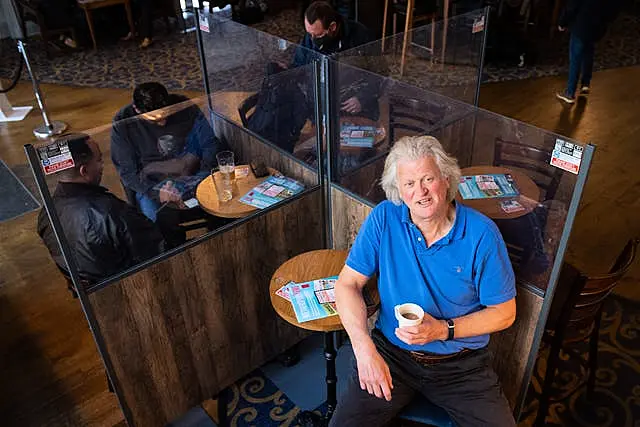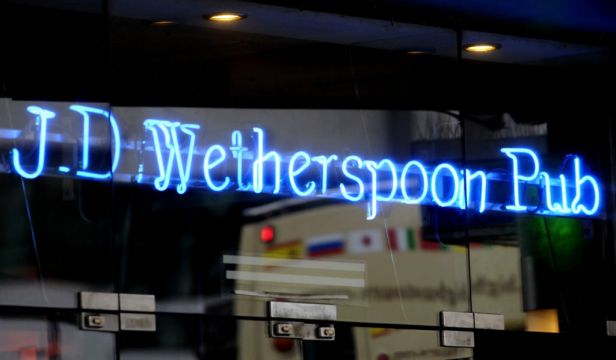Pub chain JD Wetherspoon has warned over annual losses after hiking staff wages and ramping up spending on repairs and marketing amid a slow recovery in bar trade.
The group said it is now expecting losses of around £30 million (€35 million) for the year to the end of July after investing to attract and retain workers and on the wider business.
Wetherspoon – which has more than 800 pubs across the UK and Ireland – had previously said in May that it expected to break even over the full year, having cheered a return to profit in March.
The profit alert sent shares in the group falling sharply, down more than five per cent in morning trading on Wednesday.
It comes as the group said the recovery for many pub firms had been “slower and more laborious” than expected, while the sector is also grappling with soaring costs and a pull-back in consumer spending due to rising inflation.
Wetherspoon’s latest trading update showed that like-for-like sales in the first 11 weeks of its fourth quarter to July 31st were 0.4 per cent below the same pre-pandemic period in 2019 – an improvement on the previous quarter, when they fell four per cent.

Sales of draught ales, lagers and ciders – previously the biggest driver of pub trade – were eight per cent below 2019 levels, it revealed.
“Many people predicted a boom in pub sales when lockdowns and restrictions ended due to pent-up demand, but recovery for many companies has been slower and more laborious than was anticipated,” the group said.
Wetherspoon said staff costs were far higher than before the pandemic, with firms across the sector having to increase wages to overcome recruitment difficulties.
It added that it is now “with minor exceptions, fully staffed”.
Repair costs have also soared, with the group saying it will have spent about £99 million on this in the current year, compared with £76.9 million in 2018-19, due to “catch-up” work since Covid restrictions lifted.
Chairman Tim Martin said: “Wetherspoon has tried to take a long-term approach to these issues, investing heavily in the workforce, in buildings, in marketing and in contracts with landlords and suppliers, which will hopefully create a solid base for future growth. The company remains cautiously optimistic about future prospects.”
Matt Britzman, equity analyst at Hargreaves Lansdown, said: “It looks like the older demographic’s still cautious to get out and about and that comes through in the numbers.
“Lagers and ales were replaced by spirits and cocktails as sales in lively city locations, with music on the weekends, performed much better than quieter, suburban, pubs.
“The difficulty now, for the entire pub sector, is that drinking and eating at home looks to be sticking around longer than first thought.
“That trend’s likely to continue, as the cost-of-living crisis looks poised to accelerate the tightening of purse strings.”







